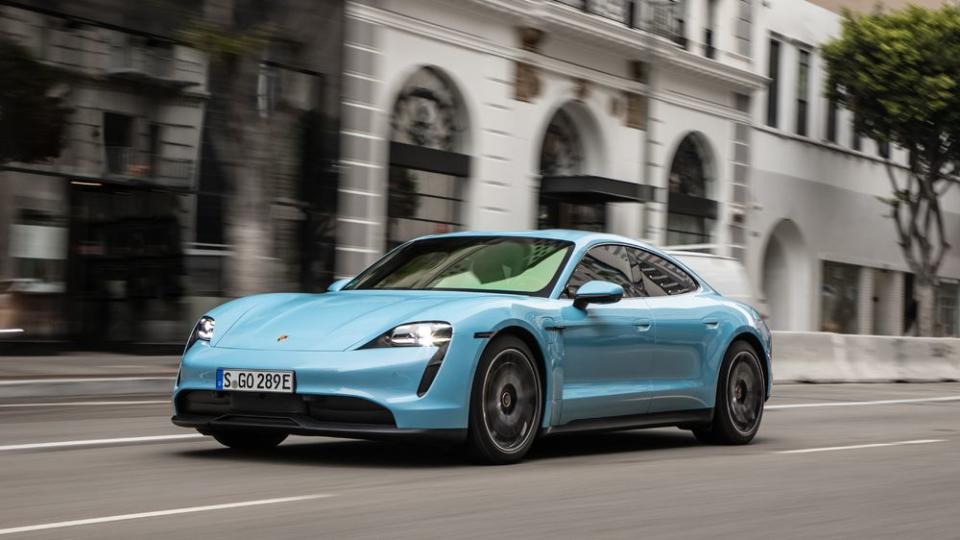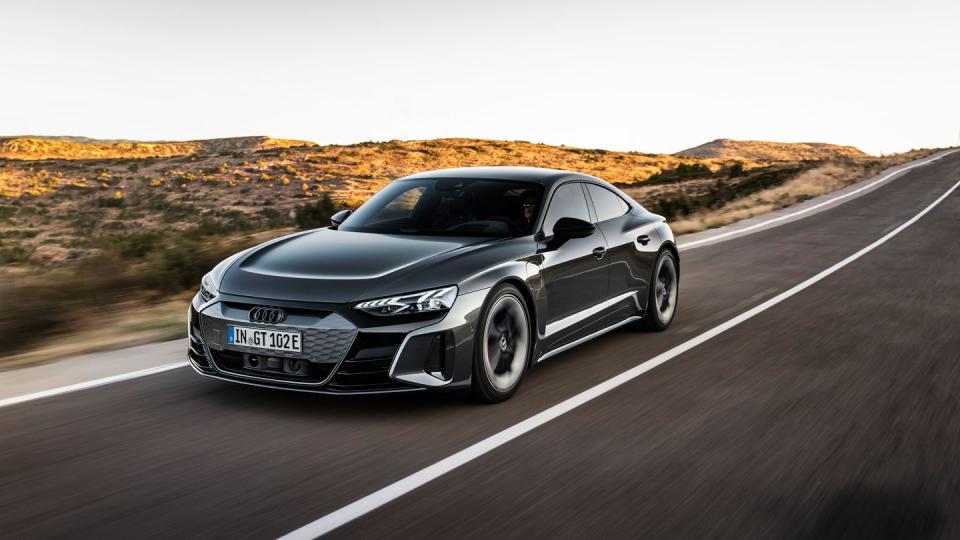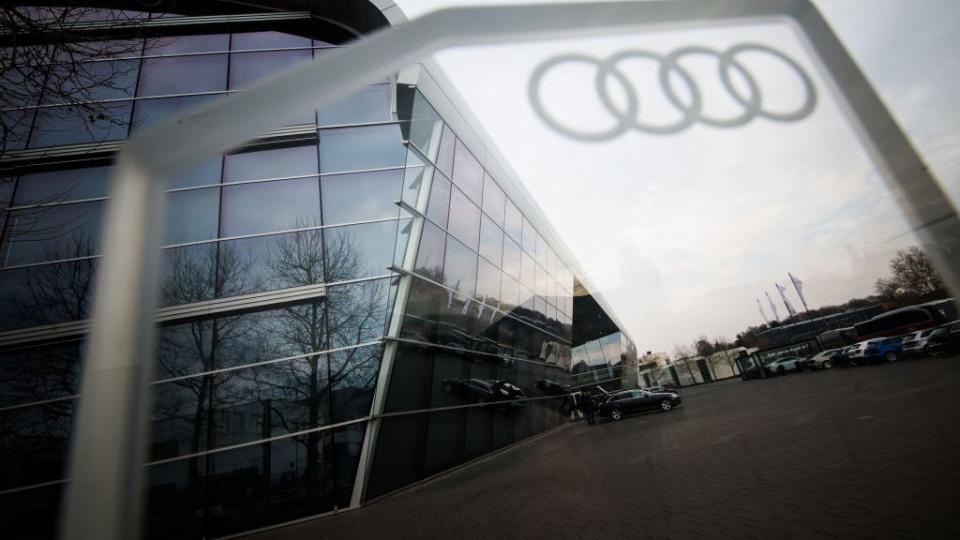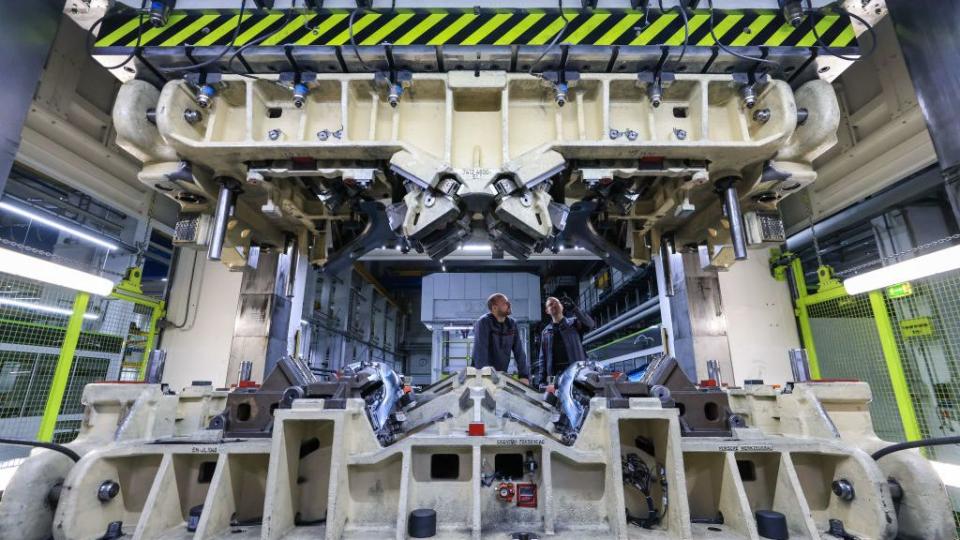Battery Leakages Prompts Recall of Porsche and Audi Flagship EVs

The Volkswagen Group is taking a tempered approach to electrification, particularly luxury brands like Porsche and Audi, which focus on high-end markets and strong performance.
Up against startups like Tesla and Lucid, Audi and Porsche offer a sibling set of electric wagons called the Audi e-tron GT and Porsche Taycan, which are subject to the latest NHTSA EV recall.
As a result of poor sealant used during battery construction, liquid intrudes into the batteries of 2023 model year units from both Porsche and Audi, increasing the risk of fire.
Porsche's first venture into electric vehicles has been a hit so far. With nearly 10,000 units delivered globally in the first quarter of 2023, Porsche's Taycan is a lively, precision alternative to the ranks of Tesla's Model S and the Lucid Air, at least for those with enough cash.
Just because the Taycan is electric doesn't mean it lost its Porsche performance, either. In fact, Porsche has previously battled Tesla for the electric Nürburgring record, though Rimac's Nevera took the crown away from both just a few weeks ago.

Fellow Volkswagen group company Audi is making a run at electrification as well, with a series of E-Tron models on sale, in addition to available PHEV models. Of all the electrified Audis, it's hard not to love the sleek Audi e-tron GT, which shares its chassis and battery architecture with Porsche's Taycan.
As a result, the Taycan and e-tron GT are regularly praised as the right blend between speed and comfort. With German-build quality, more traditional styling, and legacy brand names behind them, these models are almost the antithesis of the startup cars, a quality that carries over to the customer base as well.
But that doesn't mean all is well for these electric wagons, as Porsche and Audi just announced a recall with the National Highway Safety Administration. Don't jump to any conclusions about EV reliability just yet, however, as this recall is a bit unique.
In filings with the NHTSA, Porsche and Audi are recalling all 2023 model year Porsche Taycans and certain 2023 Audi RS e-tron GT and e-tron GT vehicles as a result of improperly sealed batteries. In 2022, Porsche switched its battery sealant process, calling for a new Teroson sealant.

However, this sealant was not applied properly and allowed liquid to accumulate in the battery, according to the NHTSA. "Liquid accumulation in the high voltage battery can cause electrical arcing, increasing the risk of a fire," the NHTSA writes in its recall report.
How exactly are the luxury VW group brands dealing with this problem? The plan is to pinpoint which models are truly affected by testing around 7000 units for leakage. Porsche and Audi will also replace the battery free of charge, if necessary, though the company estimates only about 3% of 2023 Taycans and Audi e-trons will need battery replacement.

The NHTSA says no fires or thermal events have occurred as a result of these issues. Additionally, an enhanced Teroson sealant was added to the production process in May 2023, with no models reporting liquid intrusion since this change.
Porsche first became aware of the problem in 2022, with limited customers experiencing liquid intrusion in the battery earlier in the year. In September 2022, the initial Teroson sealant was implemented in Taycan production and, by March 2023, the company received numerous reports of reduced insulation resistance values.
Audi, on the other hand, became aware of the problem in July 2022, with few examples of the liquid intrusion. E-tron and Taycan production happens under the same processes, apparently, as the updated sealant also reached the Audi models by May 2023, though the models are produced in different factories.
Ultimately, this issue appears to be a supplier issue as opposed to a problem with Porsche's or Audi's battery engineering itself. Similarly, the low level of risk of fire amongst a limited number of units means that neither company nor the NHTSA has issued an order to stop driving impacted models.
Will a brand-new battery increase the value of recalled units? Or will it tarnish the model's maintenance history? Please share your thoughts below.

 Yahoo Autos
Yahoo Autos 